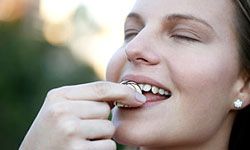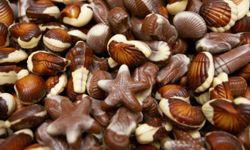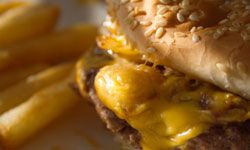What's your favorite food? You know -- the one you tell people you're addicted to. Salt and vinegar potato chips? Pickles? Chocolate? Oh yeah, chocolate. We all have our weaknesses. But can you actually be addicted to a food -- physically addicted?
Experts say "yes." In fact, studies show that some foods actually have a narcotic-like effect on our brains. So, when you occasionally overdo it on fast food or cheesecake, remember that it's not just a lack of willpower on your part. It's a chemical reaction.
Advertisement
What are the 10 most addictive foods? Well, that's a matter of opinion, of course. But our guess is that many of these would make your list. Some are downright indulgent, while others fill needs that have little to do with our taste buds.


